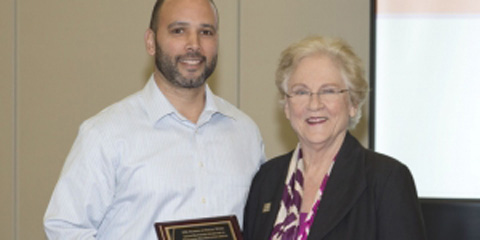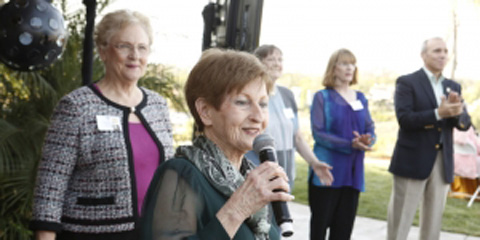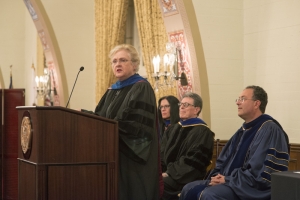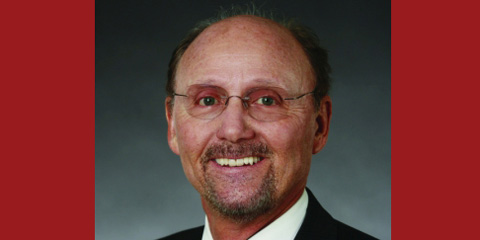News Archive
Giving
-

Jamie St. John, MSW ’15, has a soft spot for foster kids, especially those aging out of the system, having been in that age group herself not so long ago. Once they turn 18, transition-age youth can no longer receive assistance from the systems of care that previously provided for many of their needs. And like many young people, they are starting out with limited resources and experience.
-

Each year, the USC School of Social Work, the university and other service-oriented organizations honor faculty and students who have made significant achievements in their academic careers and contributions to the USC and at-large communities. Many were honored at this year’s Dean’s Recognition Ceremony, which also recognized new and past student leadership, those on the Dean's List and Dean's Honorable Mentions.
Student Awards and Recognition
-

At the age of three, Lynne Okon Scholnick, MSW ’72, and her older sister, Elsa, were taken to a foster care agency by their father. Her mother became institutionalized for what was then called melancholia, now known as depression, and never returned home. Until Scholnick graduated from high school, she would remain in foster care.
She lived in three different homes throughout her childhood. The first home was kind; the second, where she and her sister lived for 13 years, was not.
-

Do people become more religious as they age?
To find the answer, the John Templeton Foundation has funded a new research study by Vern Bengtson, a senior scientist at the University of Southern California’s Edward R. Roybal Institute on Aging at the USC School of Social Work and AARP/University Chair of Gerontology Emeritus at USC’s Leonard Davis School of Gerontology.
-

The USC School of Social Work recently launched The USC Social Work Initiative, a $75 million fundraising campaign, at a private event on April 11. Already past its half-way mark, the initiative has secured $40 million over the past four years for scholarships, research and program development, among many other areas.
-

Growing up under Jim Crow laws in the South, Frances Caple felt she had to find a way to help the most vulnerable and disenfranchised individuals in society.
She got that opportunity at the USC School of Social Work, where she helped build one of the largest and most successful training programs for school social workers, ensuring that hundreds of students graduated with the skills necessary to address critical challenges in the public school system.
-

The USC School of Social Work recently installed four faculty members, including Dean Marilyn Flynn to an endowed chair, and Ron Avi Astor, William Vega and Suzanne Wenzel to named professorships, establishing a connection between research and philanthropy that honors both scholarship and a donor’s vision.
“An endowed professorship in social work is among the most powerful ways to demonstrate a basic faith in humanity – and the incredible value of people working to help other people,” said Michael Quick, interim USC provost, at the installation event at Town and Gown March 10.
-

When the May and Stanley Smith Charitable Trust was deciding its most recent funding focus, it considered areas and organizations that would have the most impact.
Recognizing the far-reaching effects and value of trained military social workers, the trust awarded a $500,000 25th Anniversary Grant to the USC School of Social Work for scholarship support for veterans and military families.
-

The USC School of Social Work has received a gift of $250,000 to establish a fund to encourage the incubation of new strategies and solutions to housing affordability and access in Los Angeles and other urban areas.
-

Omar López can point to a few instances in his past that set him on the right track.
That moment when his mother pointed to a man in an orange jumpsuit sweeping the streets of Mexico City and told him that he would have to stay in school or he would end up in a similar position.
His father, a baker with a sixth-grade education, delivering a similar message as they rose at 3 a.m. to start preparing the dough and heating the ovens.